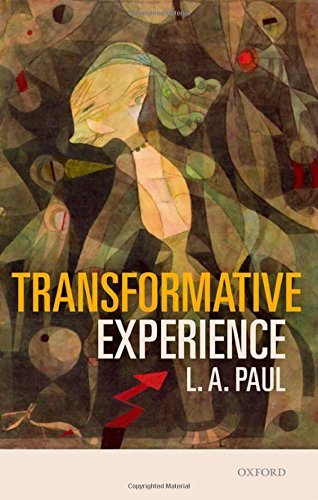What do you think?
Rate this book


Hardcover
First published October 30, 2014
We must embrace the epistemic fact that, in real-life cases of making major life decisions in transformative contexts, we have very little to go on. To the extent that our choice depends on our subjective preferences, we choose between the alternatives of discovering what it is like to have the new preferences and experiences involved, or keeping the status quo
that is, we choose to become the kind of person—without knowing what that will be like—that these experiences will make us into. [...]
When faced with each of life’s transformative choices, you must ask yourself: do I plunge into the unknown jungle of a new self? Or do I stay on the ship?